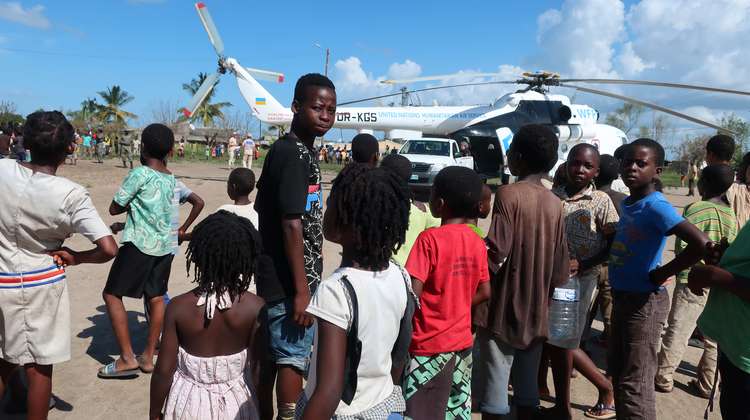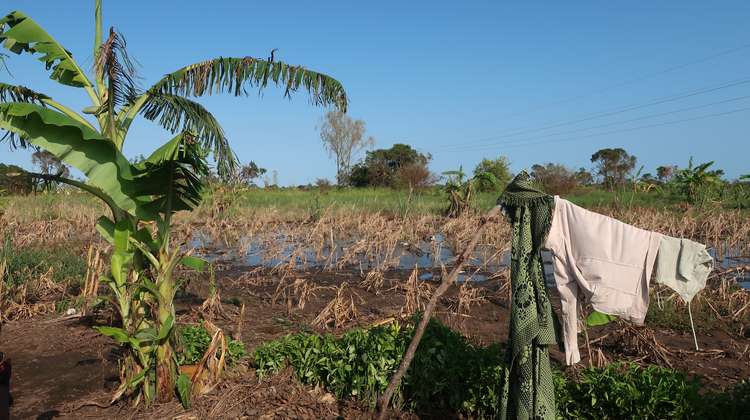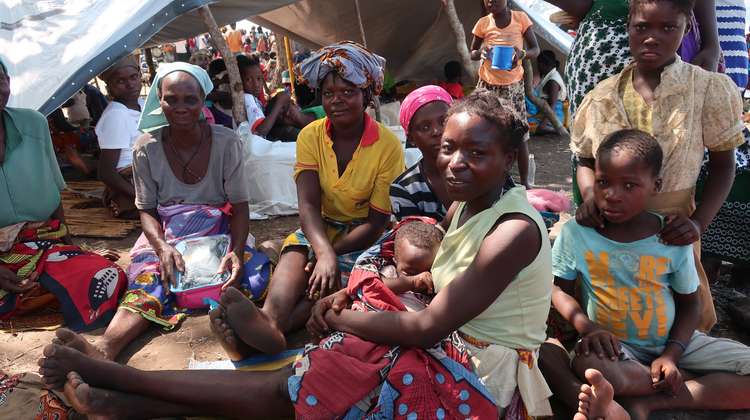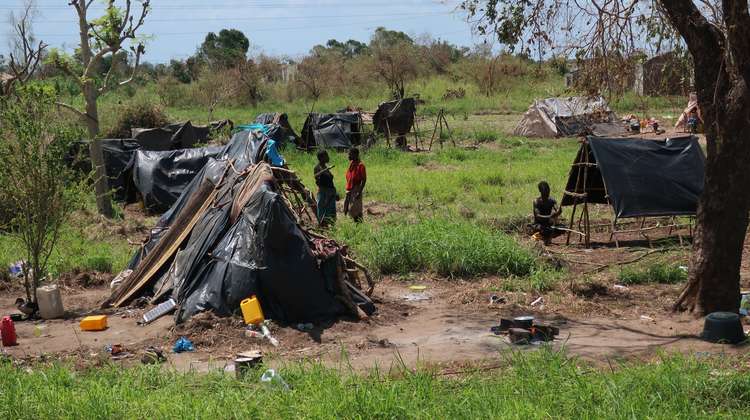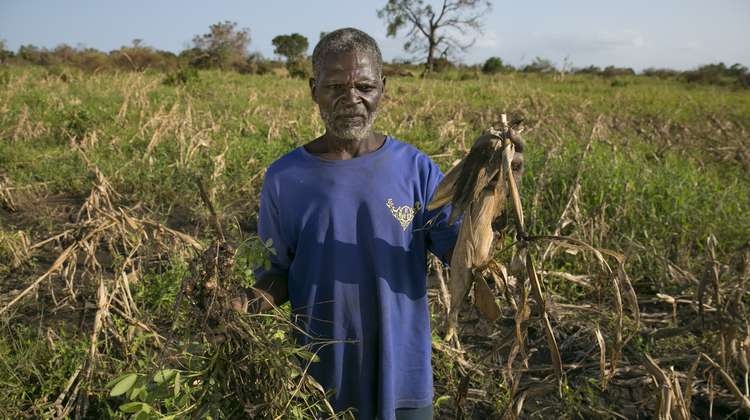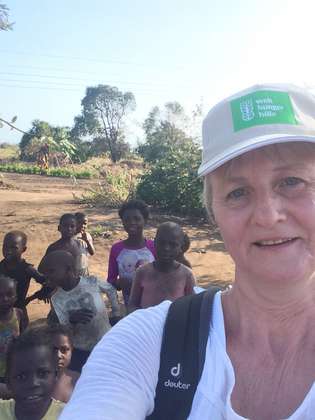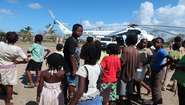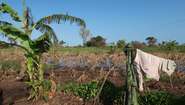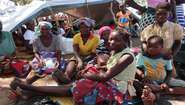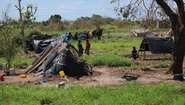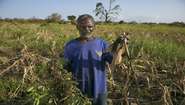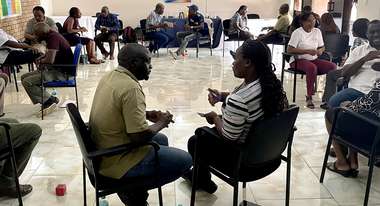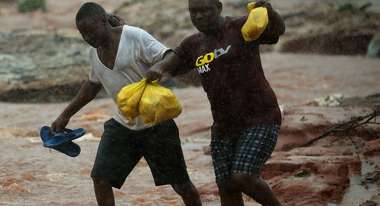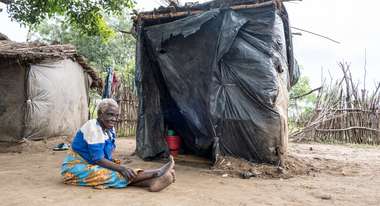Four Weeks After Cyclone Idai: A Disaster Following on From the Disaster
Following the severe floods in Mozambique, Malawi and Zimbabwe there has been hunger, cholera and malaria.
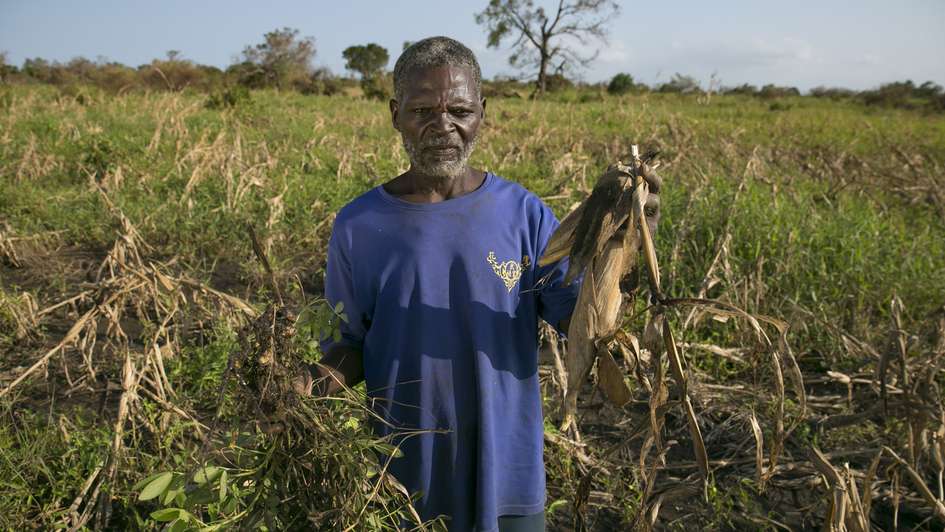
Bonn, 10th April 2019. Nearly four weeks after Cyclone Idai caused devastation, Welthungerhilfe is warning of a disaster in the wake of the disaster in southeastern Africa. Following the severe floods in Mozambique, Malawi and Zimbabwe there has been hunger, cholera and malaria. In Mozambique alone, the cyclone has left 1.8 million people unable to meet their basic needs, and destroyed the country's granaries. The harvest from over 700,000 hectares of land was destroyed. According to the UN, the cyclone destroyed a billion dollars’ worth of infrastructure.
“The waters surprised people in their sleep, so they could only save themselves and the clothes they stood up in”, reports former spokesperson Kerstin Bandsom after her return from Mozambique. “Now there is a race against time. The families affected by the disaster need fast assistance, so they can protect themselves from hunger, cholera and malaria.”
Welthungerhilfe is working with its Alliance2015 partners Cesvi and Concern Worldwide to provide hygiene kits and urgently needed household supplies for 5,000 families in Nhamatanda, about 100 km north-west of the port of Beira. To stem the spread of diseases, the families are given 20-litre containers, soap, toothbrushes, toothpaste, torches and water purification tablets. The Emergency Response Team is also distributing blankets, sleeping mats, mosquito nets, tarpaulins and ropes for making temporary accommodation.
The affected families want to sow their crops in the fields as quickly as possible. Welthungerhilfe provides them with seed and agricultural tools to enable them to do so. “However, the level of hunger is currently so high that there is a risk that people will eat the seed instead of sowing it in the fields for the next harvest in the autumn. That is why they must first receive food to eat. Only then can we distribute seed”, explains Kerstin Bandsom, regarding the difficult situation on the ground. Some of the roads are now passable again, but they still cannot take heavy goods vehicles, so aid workers also face severe logistical challenges. It has already become clear that the people affected by the cyclone, including people in Malawi and Zimbabwe, will be dependent on outside assistance for some time to come.
Welthungerhilfe is appealing for donations under the keyword “Cyclone Idai".
Emergency Response Director, Arjan Ottens, can be contacted by mobile phone in Mozambique.
User note: Please note that the pictures may only be used in a Welthungerhilfe context and may not be passed on to third parties. Images must bear the credit copyright "Photographer"/Welthungerhilfe. No long-term archiving. Please delete pictures after use!
Welthungerhilfe is one of the largest private aid organisations in Germany; politically independent and non-denominational. It is fighting for “Zero Hunger by 2030”. Since it was founded in 1962, more than 8,900 overseas projects in 70 countries have been supported with 3.53 billion euros. Welthungerhilfe works on the principle of empowering people to help themselves: from rapid disaster relief to reconstruction and long-term development cooperation projects with national and international partner organisations.





